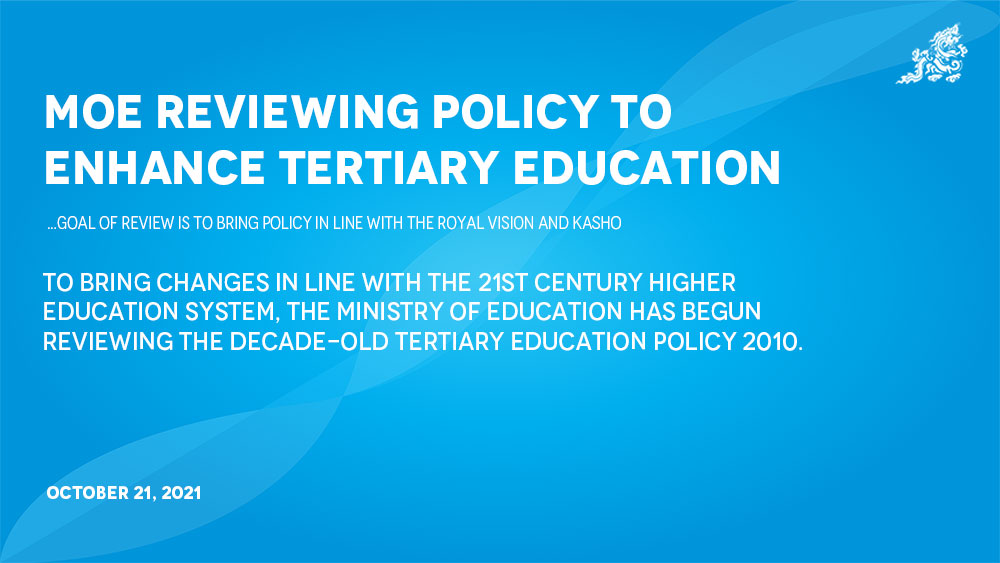…goal of review is to bring policy in line with the Royal vision and Kasho
Yangchen C Rinzin
To bring changes in line with the 21st Century higher education system, the Ministry of Education has begun reviewing the decade-old Tertiary Education Policy 2010.
This is following the Cabinet’s approval to review the policy on a priority basis.
Department of Adult and Higher Education’s (DAHE) director, Tashi Namgyal, said that apart from the policy, which must be reviewed to keep up with the changing times in the field of higher education globally, the review was timely for reforms along the line of the Royal vision and Kasho on education.
Tashi Namgyal said that while the review is still in the process, one area the department will look into is to bring in clarity on autonomy granted to tertiary education institutes, such as autonomy related to teaching materials, course contents, recruitment of human resources and budget allocation.
“The review is to ensure clarity in terms of autonomy. We’ll also look into having a single regulatory body for higher education and ensuring accountability and responsibility by tertiary institutes,” he said.
The review will also look into improving internationalisation, collaboration, and linkages among global universities, enhancing access and enabling socioeconomic development, and enhancing the professional development of academics in higher education institutes.
One of the major review areas will be how tertiary institutes should offer quality and relevant programmes with enhanced research culture and infrastructure. “The aim is to make higher education diversified, inclusive, and equitable.”
He added that it was also time to review the policy and make programmes more relevant to changing needs and cater to future needs. The programmes will undergo accreditation by the Bhutan Accreditation Council.
The review is also expected to study certain sections of the policy, which, despite being mentioned in the policy, could not be implemented effectively. For instance, the Tertiary Education Board could not fully carry out its mandate. The review will look into how to strengthen the board.
Tashi Namgyal said it would also review the funding of tertiary institutes, since the funding could not be streamlined due to various modes of establishment. “The review will strengthen funding mechanisms.”
Over the years, the policy has also failed to create vibrant internationalisation and research programmes due to low collaboration and linkages.
“We’re hoping to address this issue through this review,” the director added. “The review is a good initiative, as it is in line with the new policy to meet international standards which will lead to transnational mobility of students for study and employment.”
The review, which is aimed at bringing in relevant, robust, comprehensive, and forward-thinking policy, is expected to be completed by December.
Edited By Jigme Wangchuk


